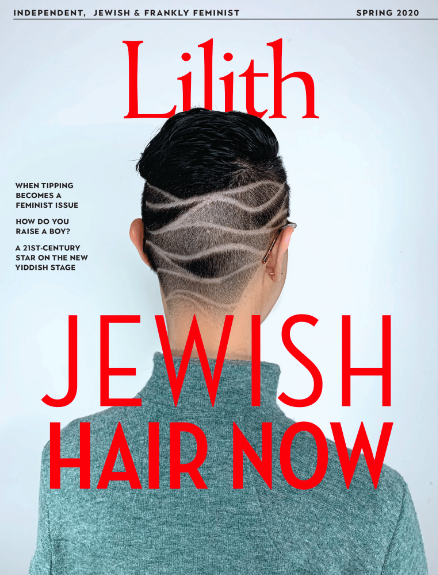Sharrona Pearl
The Weight of Shiva
Sitting shiva for my father was hard. Our house was filled with people from morning until night, and I was sad. I wore the same clothing every day, with the rip across the front of that damn white button down shirt. We followed the ritual guidelines pretty strictly: the mirrors were covered up; we stayed inside the entire week; we didn’t take baths or showers. For our own sakes and the sake of our guests, we took sponge baths in the washroom sink.
We didn’t wash our hair for a week.
I was 13 years old.
To be honest, I don’t remember much about that week. I know I spent a lot of time in my room, and my wise, wise mother let me escape absolutely as much as I needed to. My friends came. They were nervous; this was the first time most of us had been touched by out-of-order, out-of-time death and tragedy. They stayed nervous, but we also laughed. We hung out. It helped, a lot. I remember (to this day) every one of my friends who came. And who didn’t.
I remember my hair getting greasier by the day. I remember my mother telling me to sprinkle it with baby powder. I tried wetting it, and pulling it back in a ponytail, and even resorting to a French braid. It weighed about a million pounds and kept getting heavier. I was aware of it in every moment.
I’m sure it looked fine. But how I hated how it felt. From that moment, I despised the feeling of greasy hair. Most of my friends would go an extra day or two between washes, hoping to preserve a good blowout or a new haircut. I never ever did. Never. The second I felt even a hint of grease, I headed straight for the shower.
In practice, I saved a lot of time. I never really even blow-dried my (long, wavy, brown) hair. It wasn’t worth it,because I’d be washing it the next day anyway. And the next day after that. And I’d leave the shower with wet hair, brush it and go. That’s always been my styling routine: clean. Product-free. Nothing that would weigh it down or add to the grease. I can always toss my head like a hair commercial, or J-Lo prepping for a half-time show. My hair is always ready.
Except that I recently went for my yearly hair appointment and the stylist told me I washed my hair way too often. I was drying out my hair, dragging down my curls and exhausting my scalp.
I’m all about making my life easier, and minimalist routines, and saving money, but I knew—just knew—that by day three at the most my hair would be a gross, heavy, oily mess.
But Diane-the-stylist is a wise woman. And having even shinier, softer, bouncier hair seemed very appealing. I decided to try it. And honestly, I spent a huge amount of time thinking about it. Huge. So I did it. And sure enough, by Day 3 I was topknotting with the best of them and Day 4 saw the headband come out. I gave up by Day 5. But week by week I could go a little longer, and my hair would look a little better. And I would feel a little better.
The only time I’d gone more than two days without washing my hair was during week long camping trips, when we went swimming every day and I wore a hat the rest of the time. And even then I longed for just one quick hair wash. But I wanted to give this a shot. And maybe—though I didn’t realize it then—I wanted to release my unwashed hair from the shiva memories, which perhaps weighed even more heavily than the grease.
Sharrona Pearl is Associate Professor of Medical Ethics at Drexel University.
Jewish Hair Now.
The articles in this special section:
Waxing Nostalgic
Raina Lipsitz
My Mother’s Unshaved Legs
Talia Liben Yarmush
At the Beauty Parlor
Marianne Rogoff
Combing My Mother’s Hair
Ruth Knafo Setton
Hair-Pulling
Jamie Zabinsky
The Weight of Shiva
Sharrona Pearl
Head Covering: The Evolving Choices
Talya Jankovits
The Social Context of Hair: Hairstyles, Race and Status
Sarah Seltzer
HAIR IS PERSONAL. Hair is political. To make sense of
the social context of hair for Jews of color today, SARAH
SELTZER talked to CHAVA SHERVINGTON, a longtime
diversity activist in the Jewish community, as well as an attorney and mom,
who by her own admission has become “obsessed with hair issues” as she
helps her kids navigate the complex politics of their Black hair.
 Please wait...
Please wait...